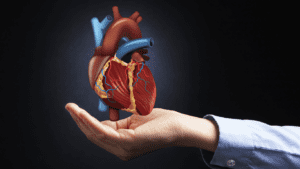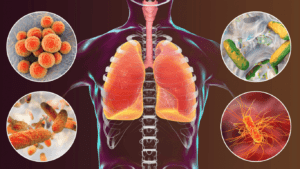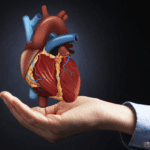Heart health is one of the most important factors that directly affects our quality of life. Cholesterol levels can have a major impact on our heart health. To maintain healthy cholesterol levels and reduce the risk of heart disease, we need to review our eating habits. A healthy diet is the key to keeping cholesterol under control and preventing heart disease. In this article, we will discuss which foods to eat and which to avoid to support heart health and improve cholesterol levels.
What is Cholesterol?
Cholesterol is a type of fat molecule that is part of our body's cell structure and performs some important functions. It is produced by the liver and is also taken in from some of the foods we consume. Cholesterol is divided into two main categories: High-density lipoprotein (HDL), often called "good cholesterol"; and low-density lipoprotein (LDL), known as "bad cholesterol".
- Good Cholesterol (HDL): HDL transports excess cholesterol to the liver and helps remove it from the body. High HDL levels help reduce the risk of heart disease.
- Kötü Kolesterol (LDL): LDL transports cholesterol to cells throughout the body. However, when LDL levels are too high, it builds up in the artery walls and can cause the condition known as atherosclerosis. This increases the risk of heart attack and stroke.
High cholesterol often has no obvious symptoms. Therefore, regular health check-ups and monitoring of cholesterol levels are important.
What to Eat for Heart Health
Here are some important foods that we should include in our diet to maintain heart health and improve cholesterol levels:
- Fiber Rich Foods: Fiber-rich foods such as oats, barley, fruits, vegetables and legumes help lower LDL (bad) cholesterol.
- Fish Rich in Omega-3 Fatty Acids: Fish such as salmon, sardines and trout are rich in omega-3 fatty acids that support heart health.
- Foods Containing Plant Sterols: Plant sterols reduce the body's absorption of cholesterol. Margarines, cereals and some fruit juices can be enriched with plant sterols.
- Beneficial Fats: Foods containing monounsaturated and polyunsaturated fats, such as olive oil, avocados and nuts, support heart health.
Foods to Avoid
The foods that we should avoid as much as possible from our diet to protect heart health are as follows:
- Saturated and Trans Fats: Red meat, full-fat dairy products and processed foods are high in saturated fat, while some margarines and commercially prepared products may contain trans fats.
- Refined sugars and processed foods: Sugary drinks, sweets and foods made with white flour can be harmful to heart health.
- High Sodium Foods: Salty snacks, canned foods and ready meals can lead to high blood pressure and negatively affect heart health.
Healthy Eating Tips
Conscious eating habits are the key to a healthy heart. Here are healthy eating tips that support heart health and can help keep cholesterol levels in balance:
- A Balanced Diet: Fruits, vegetables, whole grains, legumes, lean protein sources and healthy fats should be consumed in a balanced way. This ensures that your body gets all the nutrients it needs.
- Partition Control: Avoid excessive calorie intake by watching your food portions. Start with small portions and eat slowly.
- Label Reading: When shopping for food, read product labels. Choose products with low saturated fat, trans fat and sugar content.
- Prefer Fresh Foods: Choose fresh fruits, vegetables and whole grains instead of processed foods. These foods are rich in fiber, vitamins and minerals.
Exercise and Lifestyle Changes
Another important way to protect heart health and keep cholesterol under control is regular physical activity and healthy lifestyle habits:
- Regular Exercise: Try to do moderate aerobic exercise for at least 150 minutes a week. Walking, jogging, cycling or swimming are among the activities that promote heart health.
- Avoid Smoking and Alcohol Consumption: Smoking and excessive alcohol consumption increase the risk of heart disease. Avoiding these habits will help you maintain your heart health.
- Stress Management: Stress can increase the risk of high blood pressure and heart disease. Try meditation, deep breathing techniques or yoga to manage stress.
- Enough Sleep: Good quality and adequate sleep is vital for your heart health. The recommendation for adults is to sleep between 7-9 hours a night.
Conclusion
Cholesterol levels and heart health are closely linked to our eating habits and lifestyle choices. Choosing healthy foods, exercising regularly, making healthy lifestyle choices and avoiding stress are steps we can take to maintain heart health and keep cholesterol under control. Living a healthy life reduces the risk of heart disease and improves our overall well-being. Remember, small changes can make a big difference. Start making healthy choices for your heart health starting today. As always, consult a health professional before starting any diet or exercise program.























